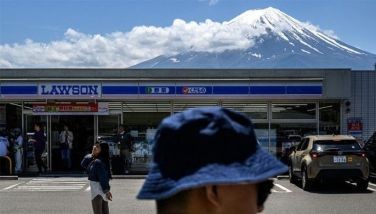China ready to negotiate investment treaty with US
WASHINGTON — China agreed Thursday to negotiate a bilateral investment treaty with the United States, a move hailed by Washington as a significant step in the Asian giant's economic reforms that could level the playing field for American businesses.
China made the concession during annual U.S.-China security and economic talks in Washington. Commerce Minister Gao Hucheng told reporters that negotiations on substantive parts of a treaty would start "as soon as possible."
The U.S. has been pushing for such a treaty for years, and American businesses had been looking for progress in this week's talks, saying it would facilitate more protections and market access for American investors in China, where state-owned company enjoy many competitive advantages.
China's new leader, Xi Jinping, who met President Barack Obama last month in California, has signaled he intends to shift toward an economy driven more by domestic consumption and less by exports — changes that would benefit U.S. companies wanted to sell products and services to China's fast-growing middle class.
"A high-standard U.S.-China Bilateral Investment Treaty is a priority for the United States and would work to level the playing field for American workers and businesses by opening markets for fair competition," Treasury Secretary Jacob Lew said in a statement.
"The commitment made today stands to be a significant breakthrough and marks the first time China has agreed to negotiate a Bilateral Investment Treaty, to include all sectors and stages of investment, with another country," he said.
Treasury officials view it as significant that China has agreed to negotiate on the basis of openness, rather than adopt its traditional approach of barring foreign investment in most sectors or requiring cumbersome administrative processes. As such, it holds promise for American service providers seeking to compete in China.
No officials from either side specified when the negotiations would begin.
China, which is increasingly looking to invest in America, has its own concerns.
Chinese Vice Premier Wang Yang said the U.S. pledged to treat Chinese investment equally and fairly and welcome investment from state-owned enterprises and sovereign wealth funds. The U.S. also agreed that the Treasury-led committee that screens foreign investment proposals would consider only national security, not other factors, he said.
A bipartisan group of U.S. senators are urging for food security and food safety issues should also be taken into account when the Committee on Foreign Investment in the United States reviews a proposed $4.7 billion bid by Shuanghui International for pork producer American Smithfield Foods Ltd. If the deal goes ahead, it would be China's biggest takeover of a U.S. company.
According to Treasury officials, China also committed Thursday to improve access to its government procurement market and stronger protection of intellectual property rights and trade secrets, amid growing U.S. concern of cyber-enabled theft.
Obama reiterated the concerns about cyber-theft when he met with the Chinese delegation leaders Thursday. The president welcoming joint efforts to develop rules and norms of behavior in cyberspace that were discussed in this week's talks.
The U.S. continued to press China to allow its currency appreciate against dollar because its low value contributes to a skewed trade balance. But it's become less of a burning issue than in the past because the yuan has appreciated by 16 percent in real terms against the dollar in recent years.
Yi Gang, vice governor of China's central bank, declined to comment directly on Treasury expectations that the yuan's value would rise further in the coming weeks. Yi said it has appreciated by 2 percent against a strong dollar this year, showing China has made progress in allowing the market to determine the value of its currency.
Lew said there was still a ways to go.
He said that China's economic reform will be a long process, but its agreement to negotiate an investment treaty "shows a commitment to opening markets that so important for our exports."
John Frisbie, president of the U.S.-China Business Council, a business advocacy group, said that if it's done right, the investment treaty could improve market access for American manufacturers, services providers, and agriculture companies. It could also improve protections for U.S. and Chinese investors in each other's markets.
- Latest
- Trending































